New Delhi: If there is one thing that Paatal Lok season two reiterates, it is this: what has to happen, will happen. Perhaps nowhere is it as powerfully underlined as in the career of Jaideep Ahlawat. The 45-year-old actor inhabits Paatal Lok’s Hathi Ram Chaudhary—inspector of the Outer Jamuna Paar Police Station in Delhi—like a second, lived-in skin. From Chaudhary’s ambling walk to his forthright speech and his inability to suffer fools, Ahlawat nails every little detail.
Slipping into Hathi Ram’s shoes after a four-year hiatus, he is gracefully accepting all the plaudits: “I met many Hathi Rams while I was growing up,” he said, though not necessarily in a police uniform. “He [Hathi Ram] is like those men and women who go to work every single day without thinking whether they will change society, but happy to be on their journey, doing good things.”
Ahlawat is much like Chaudhary—appreciative of being the toast of the town but not overcome by his own importance. He is being featured in memes, and his character has made it to an Amul ad, usually the apex of pop culture acceptance. Comparisons with Irrfan are being bandied about, and requests for interviews are piling up too. But Ahlawat, whose happiness is tinged by the sadness of losing his father recently, is busy reading scripts and focusing on his craft.
He is as grounded, available, and accessible as Irrfan Sahib. It’s only a matter of time that he is widely accepted — Honey Trehan, casting agent
As for fans praising his performance and showering adulation on the character, he said firmly, almost like the no-nonsense Hathi Ram: “No one can tell us anything about Hathi Ram better than us because no one knows him better than us.” The praise is appreciated but incidental for creating a character they have understood inside-out.
Small roles, big impact
Jaideep Ahlawat took his time to get to this point. He was considered for the role of Vidya Balan’s husband in Ishqiya (2010) when he was still a student at the Film and Television Institute of India (FTII) in Pune.
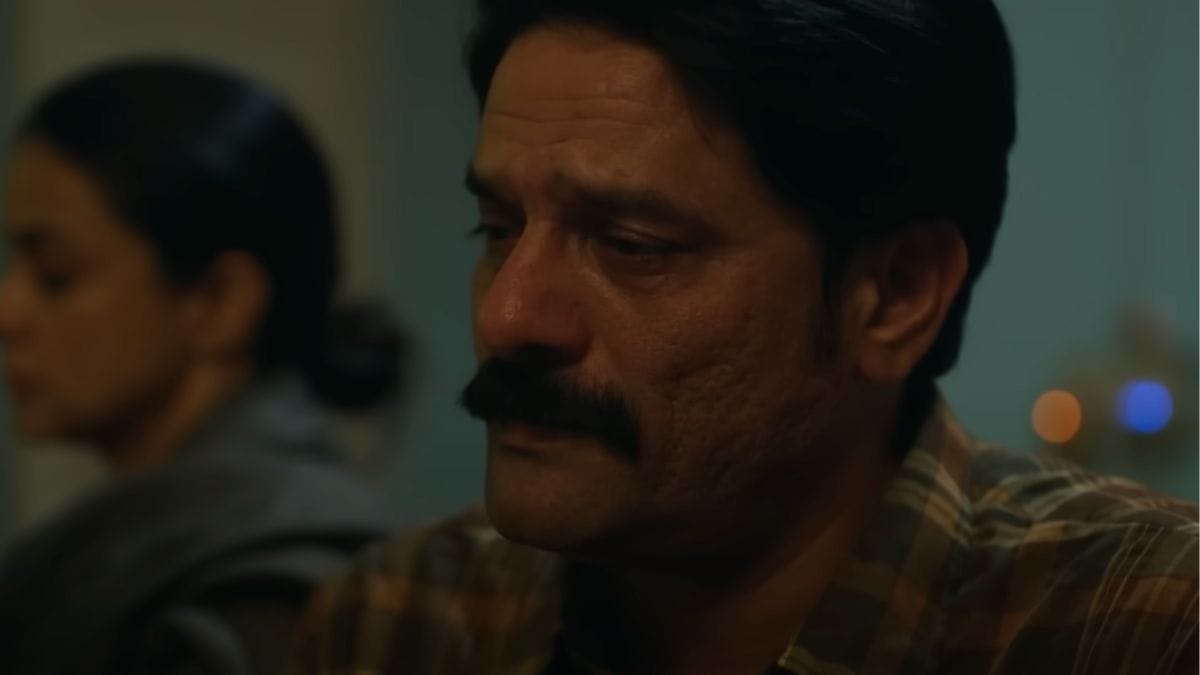
“My team auditioned him and he had nailed it but director Abhishek Chaubey thought he looked too young for the part, lacking in authority, which eventually went to actor Adil Hussain,” said casting agent and Ahlawat’s now-dear friend Honey Trehan.
What Diljit Dosanjh is to Sikhs, Jaideep is to Haryanvis, the opposite of the boisterous bouncer stereotype — Gaurav Dwivedi, Jaideep Ahlawat’s FTII batchmate
When filmmaker and writer Shonali Bose was locking the cast for her ex-husband Bedabrata Pain’s Chittagong (2012), she reached out to his former theatre teacher Sunil Chitkara—the man who had mentored Ahlawat during his early years in theatre. She had earmarked Chitkara for a key role. Chitkara, who had fallen ill by the time the shoot was to begin, recommended Ahlawat’s name. Trehan, the casting agent, roped him in. It was the small but powerful role of Ananta Singh—one among a band of revolutionaries who led the Chittagong armoury raid in 1930.
Chittagong also features Rajkummar Rao and Vijay Varma, Ahlawat’s batchmates from FTII. And it was serendipitous. Manoj Bajpayee, who was playing the head of the revolutionaries, Surya Sen, suggested Ahlawat’s name to Anurag Kashyap, who was then directing Gangs of Wasseypur (2012). Kashyap needed someone with strong screen presence to play the role of the father Shahid Khan, whose feud with Ramadhir Singh (Tigmanshu Dhulia) sets the film’s tone. With his lanky figure, long hair, and commanding voice, Ahlawat stood out in the two-part movie that redefined mainstream Bollywood filmmaking, if only for a while.
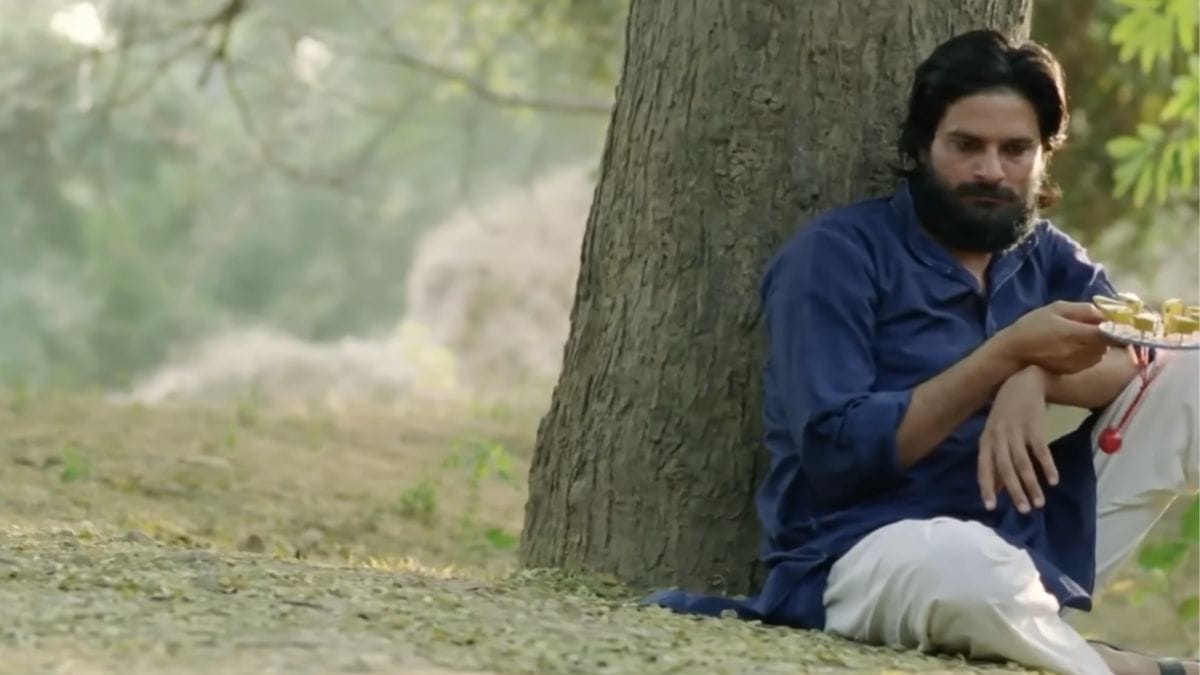
Gangs of Wasseypur saw the comeback of Bajpayee (who played Shahid Khan’s son Sardar Khan), certified Nawazuddin Siddiqui as a star, and launched Richa Chadha and Huma Qureshi as actors who were more than their looks.
I had seen some of Jaideep bhai’s work, but honestly, I didn’t have a very solid reason to cast him. Thank God my gut pointed me in the right direction. I can’t imagine the show without him today — Sudip Sharma, creator, writer, and producer of Paatal Lok
That was 2012, and Ahlawat’s break had come after several small roles—such as a political henchman in Aakrosh (2010) and a nasty politician in Khatta Meetha (2010). Both were films cast by Trehan, directed by Priyadarshan, and had a nearly identical supporting cast of character actors. Ahlawat would have remained a 6′ 2′ tall poppy in a sea of poppies, shining in small parts, making the lead actor look good, while being careful not to overshadow him or her. He was cast as one of the antagonists in Shah Rukh Khan’s Raaes (2017), and as Alia Bhatt’s enigmatic mentor in Raazi (2018).
Reviews were good—the kind reserved for character actors. And they could have stereotyped Ahlawat as the go-to actor for parts that required him to be strong, silent, and seething. That is until screenwriter and producer Sudip Sharma decided to cast him as Inspector Hathi Ram Chaudhary in Paatal Lok.
“It was purely gut instinct,” recalled Sharma. “I had seen some of Jaideep bhai’s work, but honestly, I didn’t have a very solid reason to cast him. Thank God my gut pointed me in the right direction. I can’t imagine the show without him today,” he added.
Ahlawat has also become the poster boy of Haryanvi swag, with an attitude and language that are no longer objects of mirth or scorn. His friend and batchmate from FTII’s Class of 2008, Gaurav Dwivedi, put it well: “What Diljit Dosanjh is to Sikhs, Jaideep is to Haryanvis, the opposite of the boisterous bouncer stereotype.”
Released in May 2020 as Covid-19 was peaking, season one’s Hathi Ram captured the imagination of a nation torn between tragedy outside and suffocation within. The policeman, underestimated by his bosses, and treated with some amount of irritation by his family, became symbolic of the common man—who approaches his work with single-minded focus, and expects no reward.
In terms of values, Sharma said, he modelled Hathi Ram on his own father. “He was an income tax lawyer and consultant…There was a sign in his office cabin – Work is worship. He was very persevering about it, but in a very practical, nonchalant way. Much like Hathi Ram and his value system of fairness, empathy, kindness.”
Indeed, Hathi Ram is like the father most of middle class India grew up with. No side income, no extraneous entanglements, zero ability to impress the authorities. Always short on money, but not of aspiration for his child—even if he was unable to express himself.]
Also read: Paatal Lok season 2 gets Nagaland right. Doesn’t spoon-feed Northeast to Hindi viewers
At home in Kharkara
The boy from Kharkara, a village in Haryana where Jaideep Ahlawat was born to school teacher parents—his mother a PT instructor and father a teacher of social science and English—remains ingrained in the actor. It was a strict home but one imbued with love for knowledge.
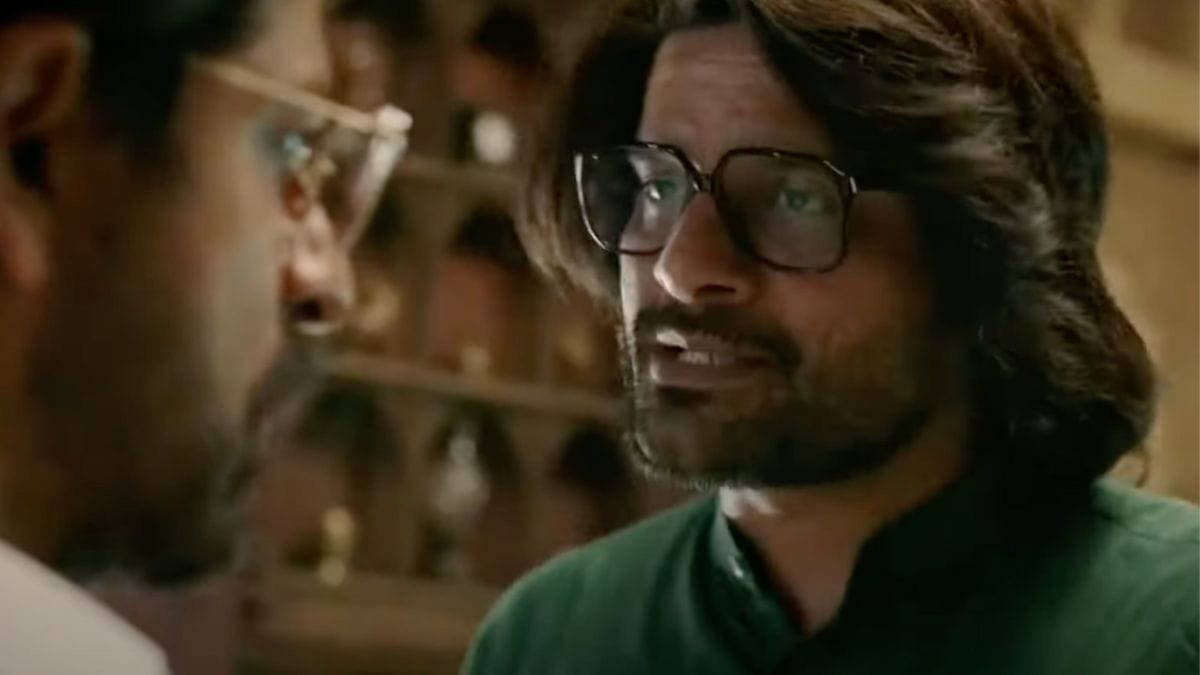
Ahlawat recalled the books his father often brought home, such as Munshi Premchand’s collected short stories, and the TV and VCR that he rented so that the family could watch movies such as Mughal-e-Azam (1960), Pyaasa (1957), and Devdas (1955) on demand. Ahlawat studied in Kharkara until Class 10 and went to Jat College in Rohtak – where his school teacher sister still lives – for Class 12 and graduation. He then enrolled at the Maharshi Dayanand University to pursue a Master’s degree in English.
As Sudip bhai says, Hathi Ram is one person I want to be. He is unique, because he is from amongst us — Jaideep Ahlawat, actor
It was while in his first year at MDU in 2003 that Ahlawat met Chitkara and attached himself to him, learning by watching and doing his plays. By that time, he had given up the dream of joining the Indian Army, having not been able to clear the exams.
“Jaideep had seen me perform Oedipus in some inter-college festival and told me, ‘Mujhe bhi yeh karna hai (I also want to do this)’. I helped MDU do a play, Shankar Shesh’s Poster, where Jaideep won the Best Actor award in the inter-zonal competition. Next year, we did another play, Jalta Hua Rath by Swadesh Deepak, and he won Best Actor again in the inter-zonal play tournament,’’ recalled Chitkara.
He also remembers Ahlawat asking him, “Ab kya karoon? (what should I do now?)”. When Ahlawat mentioned the idea of enrolling at the National School of Drama (NSD) in New Delhi, or Panjab University’s Department of Indian Theatre, Chitkara told him to check out FTII and helped him prepare for it.
Also read: Scriptwriting is the hot new career. Engineers, doctors rush to Netflix, Amazon, Hotstar
‘Planet FTII’
Jaideep Ahlawat has not changed much from the young man Arvind Pandey, his acting teacher, first met at FTII during the final interview stage. His batch was extraordinarily talented, comprising Vijay Varma, Rajkummar Rao, Gaurav Dwivedi, Sunny Hinduja, Jatin Goswami, Gaurav K Sharma, and Pitobash Tripathy, among others. As part of the selection process, the candidates were given a location, asked to create a storyline around it, and perform.
You understand you have to start from zero, that you don’t know anything. But neither do your classmates. So, the solidarity and emotional connect is intense. You realise you’ve known each other from a time when you were trying to understand this art, and you’ve seen each and everyone’s truth. For them and yourself, you are forever that FTII student — Jaideep Ahlawat, actor
Ahlawat’s group improvised a war scenario, where everyone played Army personnel. “All the judges, including I, were highly impressed with the improvisation, and most of the candidates from that group, including Jaideep, were selected for the FTII acting course. Later, when I met him in class, I learned that he had initially aspired to join the Indian Military Academy. That insight into his background made his discipline and dedication to acting even more remarkable,” said Pandey.
FTII was “difficult” for Ahlawat initially. It required “getting used to the language and culture of different people, with no exposure to world cinema,” he said. But slowly, the institution and its environment grew on him.
“You understand you have to start from zero, that you don’t know anything. But neither do your classmates. So, the solidarity and emotional connect is intense. You realise you’ve known each other from a time when you were trying to understand this art, and you’ve seen each and everyone’s truth. For them and yourself, you are forever that FTII student,” he said. Or as Dwivedi put it, an eternal inhabitant of Planet FTII.
By all accounts, Ahlawat was one of the most sincere students in his class, always asking thoughtful and intelligent questions. For classroom work, he once performed a scene from the play Aadhe Adhure by Mohan Rakesh with great commitment. After class, Dwivedi and Ahlawat would often visit Pandey’s hotel room—he was a visiting professor—where they would discuss acting late into the night.
It's actually insane that:
Jaideep Ahlawat, Rajkummar Rao, Vijay Varma and Sunny Hinduja were part of the same FTII batch of 2005. pic.twitter.com/kt8FLNNirO
— Shilpak. (@ugach_kahitarii) January 23, 2025
“His hunger to understand the craft was evident in every conversation. He was the quiet type—introspective, deeply observant, and always eager to explore acting at a profound level. His questions and analysis of performances were consistently insightful, reflecting his serious approach to the craft,” added Pandey.
Gaurav Dwivedi, who arrived at FTII after obtaining an engineering degree from the Mandsaur Institute of Technology in Madhya Pradesh, recalled their escapades. Dwivedi and Ahlawat would drink “more than their fees” at the residence of then-FTII director Tripurari Sharan, who played a crucial role in restarting the institute’s acting diploma in 2003. They learned much under the FTII wisdom tree, said Dwivedi – be it living without fear of judgement, appreciating cinema from other cultures, or being around liberated women.
Ahlawat has remained close to his origins. He went home often, and married his girlfriend, Jyoti, who had joined FTII a year after him. He continues to live in the same Mumbai home he and Jyoti moved to more than a decade ago, in Bangur Nagar. His wife has left acting to teach dance and movement therapy. They have no children – an aspect of their lives they often get teased about, according to Ahlawat’s batchmate, the actor and trainer Prabhat Raghunandan. “We are told to mind our own business when we ask them about it,” said Raghunandan, marvelling at the steadfastness of the couple’s relationship.
Raghunandan, who came to FTII after completing an undergraduate course in Korean from Jawaharlal Nehru University (JNU), claims to have named the FTII batchmates’ Whatsapp group.
“We were hanging out one day at someone’s home at a house party, and were toying with the idea of going to the gym and doing a spot of grooming. That’s when we decided we were the ‘Majboot Actors’ Association’ because we didn’t need all that. It was my idea to replace the z with j in mazboot [strong] to show that we didn’t take ourselves too seriously.”
The group, according to Ahlawat, is a great source of comfort.
Also read: ‘A female director doesn’t mean no male gaze’—Kani Kusruti is so much more than All We Imagine
Struggle in Mumbai
Jaideep Ahlawat’s journey has taught him immense patience, which has only increased with age. “It has to keep you in the right frame of mind. You know, some things are necessary and have to be done, and some are not. The race is everyone’s; there’s nothing right or wrong. Everyone has to live the life they want. I see everyone’s point of view,” he said.
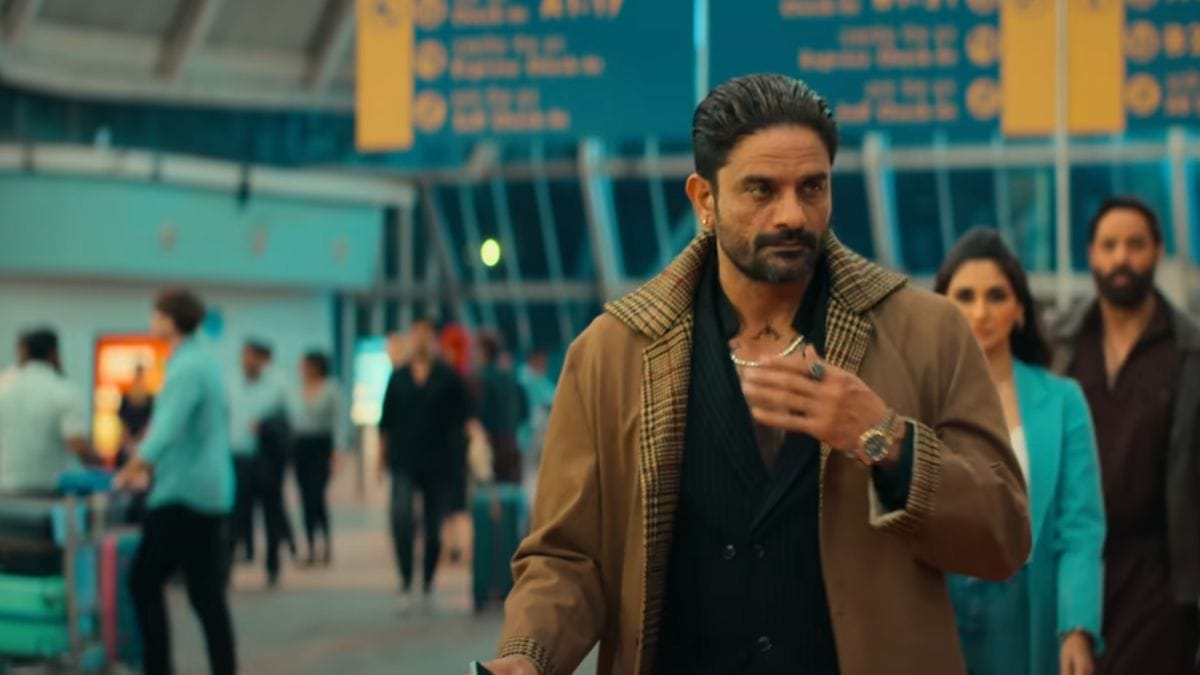
His life in Mumbai began in a one-bedroom flat with one batchmate, a student from the editing course at FTII. The number of inhabitants slowly grew to three, and then four, he recalled. “At one point, there were six of us in a one-bedroom apartment. But it was not a bad time or a sad time, just a bit difficult, in that we could eat only once a day sometimes.”
Despite the struggle, Ahlawat auditioned sparingly. After appearing for several auditions in a single day, he decided he would never do that to himself again. Yet, he was never told that the industry wasn’t for him. “I never gave such a bad audition,” he said, with a sense of pride.
Also read:
Becoming Hathi Ram
Jaideep Ahlawat, who modelled Hathi Ram’s lopsided walk on his schoolteacher father’s, acknowledges that the world is full of people like him – invisible, unidentifiable, missable. Much of Hathi Ram may well be Ahlawat, or merely the world projecting it onto him – empathetic, slow, not greedy, and not in a race.
According to the actor, most people around us are not out-of-the-world characters. “They are our heroes, but we don’t celebrate them. Yet, they do everything they can to make their family’s lives happy. As Sudip bhai says, ‘Hathi Ram is one person I want to be’. He is unique, because he is from amongst us.’”
Success hasn’t changed Ahlawat much. Perhaps his clothes are now styled for public appearances, and there is a Mercedes SUV in the car park. His ability to choose the right scripts remains the same, noted Chitkara, while Pandey said he is constantly reinventing himself.
Ahlawat knows exactly what’s working, acknowledging it with a smile in Hathi Ram style. There’s much ahead to entrance audiences – from playing the antagonist to Saif Ali Khan in Netflix’s upcoming film Jewel Thief to sharing the screen with Manoj Bajpayee in season three of Amazon Prime Video’s The Family Man.
For Hindi cinema, which is still mourning the loss of Irrfan, Jaideep Ahlawat is a salve. According to Honey Trehan, he has the same purity of intent and ability to nurture himself that Irrfan had. “He is as grounded, available, and accessible as Irrfan Sahib. It’s only a matter of time that he is widely accepted.”
Kaveree Bamzai is a senior journalist, former editor of India Today, and author of ‘The Three Khans: And the Emergence of New India’. Her X handle is @kavereeb.
(Edited by Zoya Bhatti)



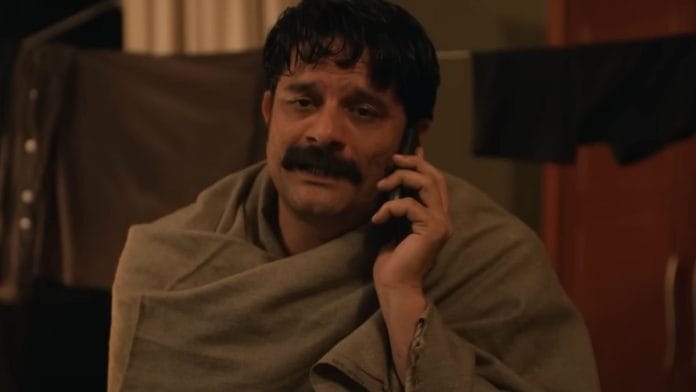



“learnt ……….. being around liberated women”, seriously?
Ms. Kaveree Bamzai, like most others of her ilk, is a creature of habit. That condescending tone and tenor, the editorial urge to pontificate and educate others, that self-congratulatory sense of being a “liberated” woman. And of course, an obsession with the Khans of Bollywood.
It must have hurt Ms. Bamzai though that Ahlawat is unapologetically Hindu. She was very careful not to bring his religion and religiosity into the equation and cleverly kept it out of the entire article.